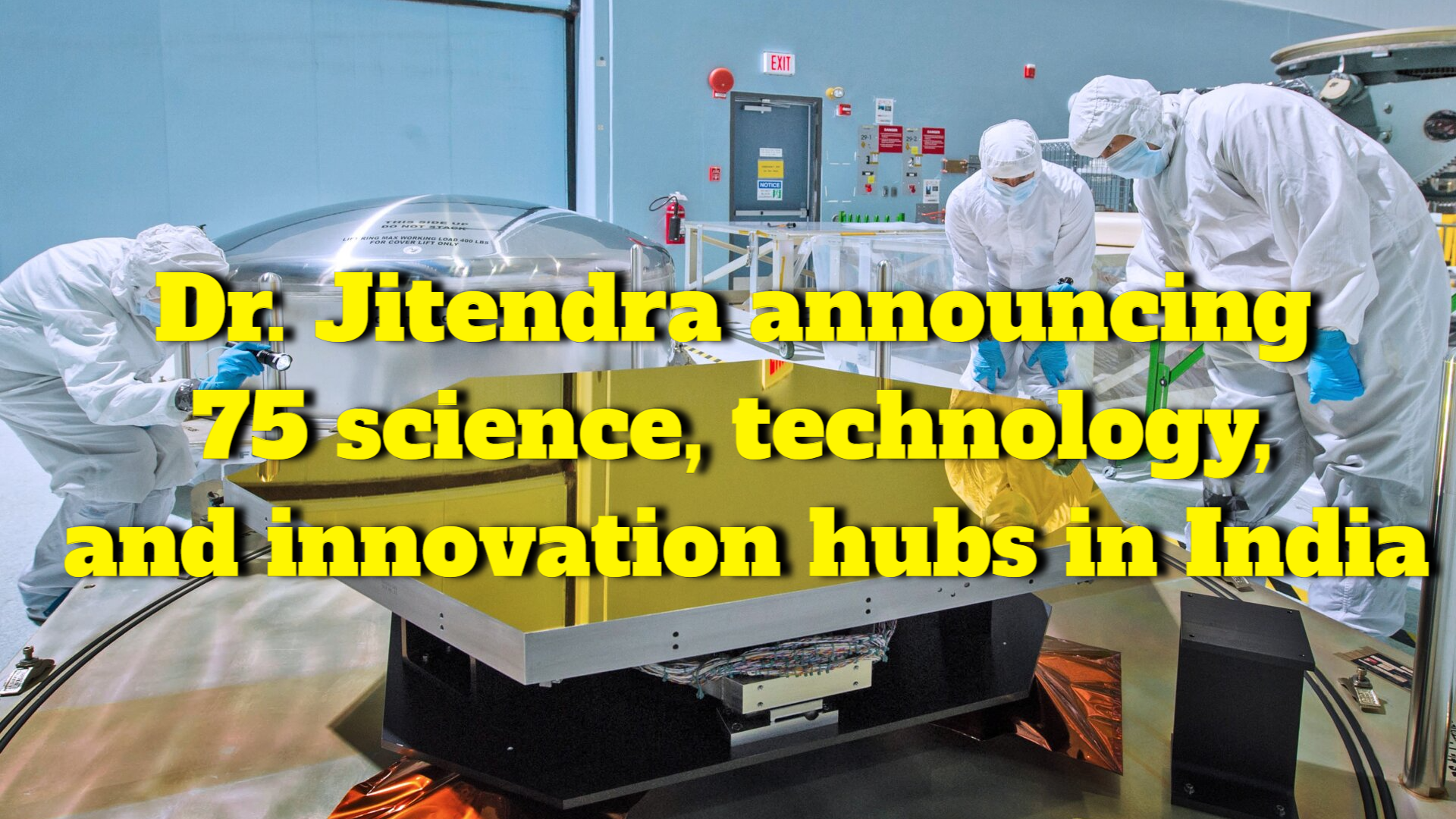Jitendra Singh announced the establishment of 75 Science, Technology, and Innovation (STI) Hubs for Scheduled Castes and Tribes. Twenty STI hubs have already been constructed, directly benefiting 20,000 SC and ST residents. According to Dr Jitendra Singh, Minister of Science and Technology, the Science Technology and Innovation (STI) hubs being built by the Department of Science and Technology (DST) would primarily have three aims. Capacities and Capabilities will be developed among the SC/ST community through the training and skill development programs offered by STI Hubs.
Key Highlight:
- Jitendra Singh announced the establishment of 75 Science, Technology, and Innovation (STI) Hubs for Scheduled Castes and Tribes.
- Twenty STI hubs have already been constructed, directly benefiting 20,000 SC and ST residents.
- The decision was made in line with Prime Minister Narendra Modi’s vision and determination to uplift the weaker sections of society.
- The STI Hubs will develop, nurture, and ensure the delivery of appropriate and relevant technologies for inclusive socioeconomic development, including the creation of sustainable livelihoods for the SC andST populations.
- The training and skill development programs offered by the STi Hubs would help strengthen the SC/ST population’s capacities and capabilities.
Dr Jitendra Singh, Union Minister of State (Independent Charge) for Science and Technology; Minister of State (Independent Charge) Earth Sciences; and Minister of State for Personnel, Public Grievances, Pensions, Atomic Energy, and Space, today announced the establishment of 75 Science Technology and Innovation (STI) Hubs across the country, exclusively for Scheduled Castes (SCs) and Scheduled Tribes (STs), which will not only promote scientific talent but also contribute to socioeconomic development.
He stated that in the last two years, 20 STI Hubs (13 for SCs and 7 for STs) have been established, directly benefiting 20,000 SC and ST populations through a variety of interventions spanning farm, non-farm, and other allied livelihood sectors, as well as various livelihood assets such as energy, water, health, and education.
Dr Jitendra Singh Singh stated that the decision was made in line with Prime Minister Narendra Modi’s vision and determination to uplift the weaker sections of society and bring them on par with the rest of society, so that everyone can contribute collectively to propelling India to new heights over the next 25 years.
Referring to the Prime Minister’s 75th Independence Day address from the Red Fort, the Minister stated that in addition to meeting basic requirements, reservation is being ensured for Dalits, Backward Classes, Adivasis, and impoverished people from the general category. Recently, in the sphere of medical education, reservation has been secured for the OBC group in the All India quota, and the States have been granted the authority to create their own list of OBC, he noted.
Dr Jitendra Singh stated that the Department of Science and Technology’s (DST) Science Technology and Innovation (STI) Hubs will develop, nurture, and ensure the delivery of appropriate and relevant technologies for inclusive socioeconomic development, including the creation of sustainable livelihoods for the SC and ST populations in line with their growing aspirations. According to the Minister, the training and skill development programs offered by the STI Hubs would help strengthen the SC/ST population’s Science, Technology, and Innovation (STI) capacities and capabilities. Additionally, the STI Hubs enhance Indigenous Knowledge Systems (IKS) through S&T inputs and conversion to relevant technologies for the purpose of generating better livelihood options, he added.
According to the Minister, STI centres will primarily pursue three goals: a) To strengthen the weakest linkages in the dominant livelihood systems using science and technology (S&T) interventions; and b) To establish social enterprises based on the strengths of livelihood systems. b) To enhance Indigenous Knowledge Systems (IKS) through the application of science and technology in order to strengthen livelihoods.
The STI Hub developed by the CSIR-Institute of Microbial Technology (IMTECH) in the Union Territory of Ladakh integrates information technology (IT) and health diagnostics, while also strengthening the IT skills of ST youth. The Center is developing Internet of Things-based Point of Care Devices (PoCD), e-diagnostics, and smart diagnostic technologies for transmitting real-time observations to medical specialists. These technologies will primarily serve the region’s ST population.




